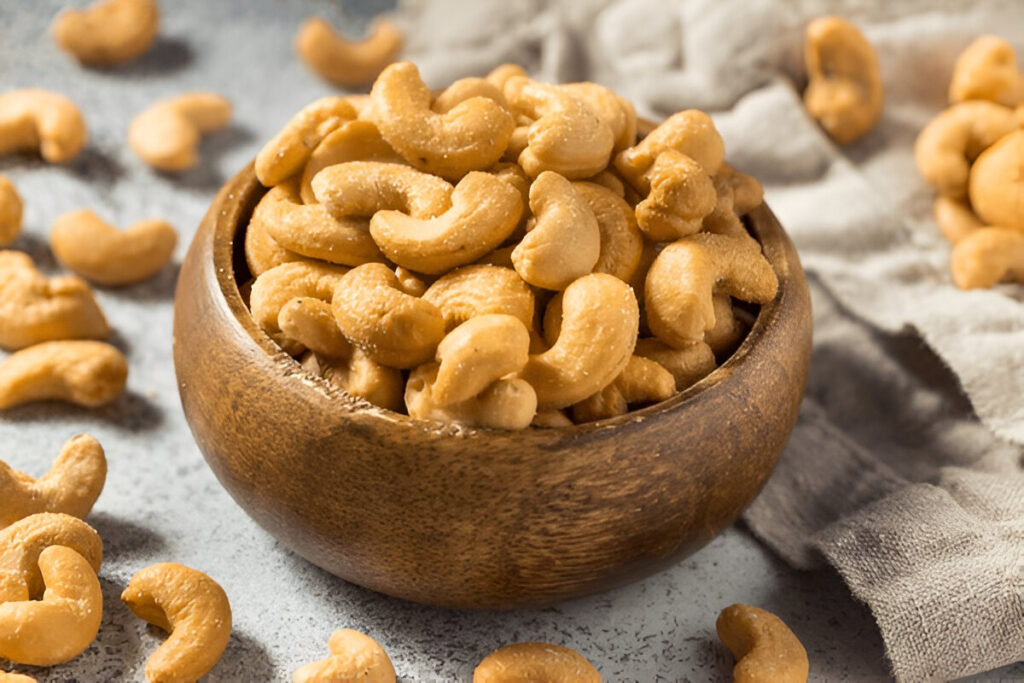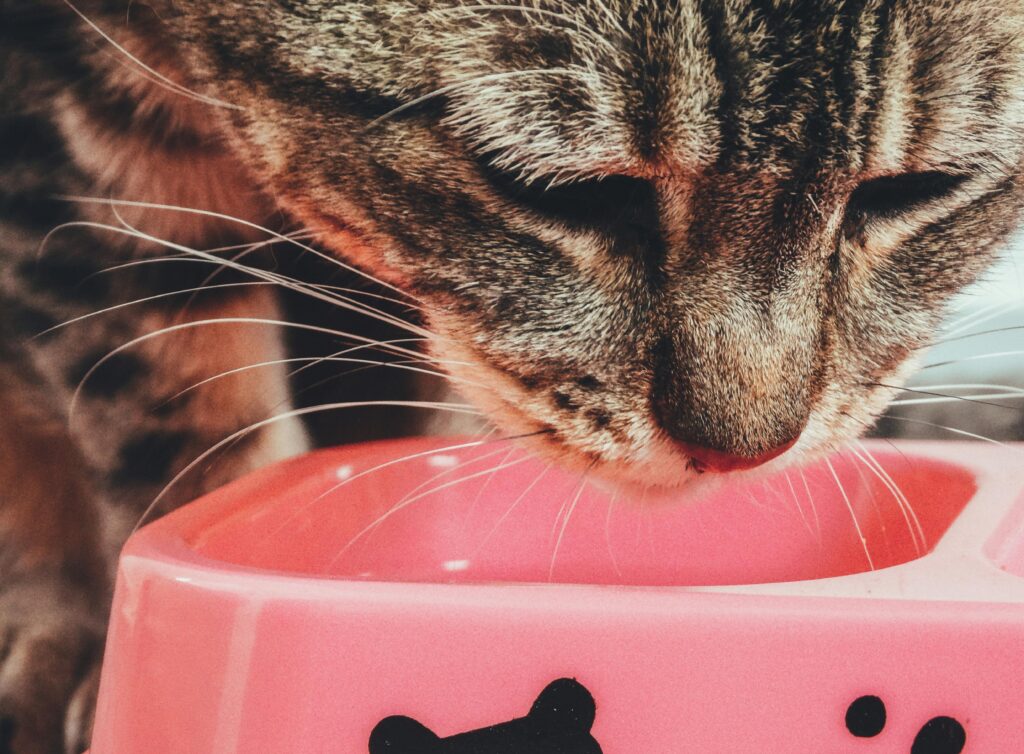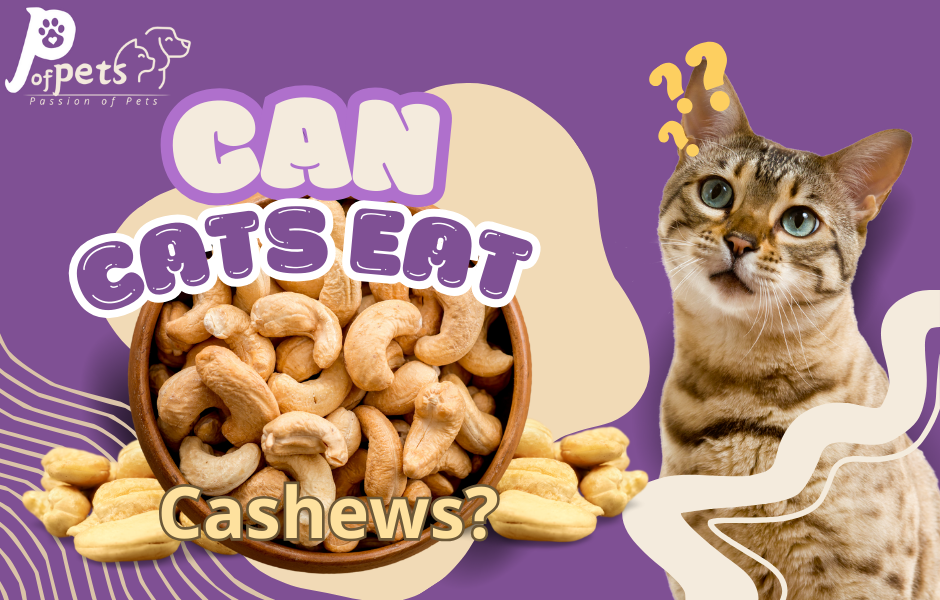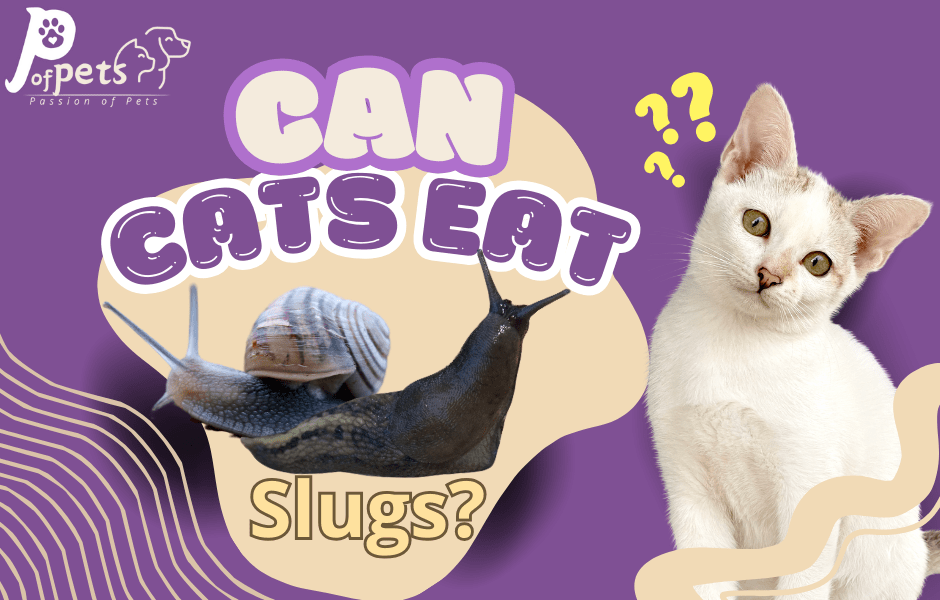Can Cats Eat Cashews? Decoding Felicity’s Food And Nutty Treats
Animals have different dietary needs than humans
Felines are notoriously picky eaters, with particular nutritional needs. Because they are obligate carnivores, these pets have very different dietary needs than both humans and dogs. With a few simple adjustments, you can ensure that your cat is getting the right nutrients they need to stay happy and healthy! So, in this complete guide, we’ll be looking at if cats can eat cashews, along with their nutritional requirements, risks, and benefits of cashews, and other treats you could give them.
Cat Nutrition
Cats need a diet high in protein, moderate in fat, and very low in carbohydrates. This rule to derive important minerals from animal meat is true to those animals considered obligate carnivores. This is why cats can’t digest plant-based protein or carbohydrates as efficiently as omnivores can. As a result, they need to eat a high-meat diet to make sure they are getting every part of the nutrition they need.
Feline Diet
A feline diet comprising good-protein sources, fatty acids, vitamins, and minerals in balanced proportions. High-quality commercial cat foods are designed specifically to meet these needs, but look for formulas appropriate for your cat’s age, health status and activity level. Homemade diets are another option, only they need to be carefully planned to make sure they’re balanced and meeting dietary requirements — consult a vet or renewal pet nutritionist for guidance.
What Can Cats Eat?
Cats are obligate carnivores, but some human foods can safely be given as a treat. However, a good number of human foods aren’t suitable for cats and can even be deadly to them. It’s important to understand what foods are okay to eat and which; we should not be eating for health reasons.
Protein for Cats
Cats, like other carnivores, rely on protein to provide essential amino acids for muscle maintenance, growth and overall good health. Cats are obligate carnivores and need the best animal focused proteins, such as chicken, turkey, and fish. In contrast, plant proteins aren’t as easily digestible, nor do they offer the same nutritional benefit.”
Cat Health
As a cat parent, you are likely well aware that keeping your furry friend healthy extends beyond feeding them a balanced diet. Routine vet visits, clean water, and a stimulating environment are also crucial. Proper nutrition is crucial because it can prevent health issues and promote a long, healthy life for your cat.
How Many Cashews Can Cats Eat?

Treats can provide cats with a little extra pleasure, and can also be a great way to bond with your furry companion. Not all treats are made alike, though, and some could put your cat’s health at risk. One of the most common nuts there is, cashews are often questioned when it comes to pets.
Cats and Nuts
Nuts, as a rule, are not a kitten’s natural food. Some nuts are safe to share with your cat, but others can be toxic. As for cashew, they’re in a gray area: not toxic to cats, but certain risks come into play if fed inappropriately.
Safe Snacks for Cats
Cat Treats – Which are Safe and Healthy for Your Cat? Most commercially available cat treats are formulated for the unique nutritional needs of felines, so they can be a good choice. Finally, small amounts of cooked meat or fish can also be given to your Axolotl as occasional treats.
Are Cashews Safe for Cats?
Although cashews are not toxic to cats, they are not a suitable treat in this regard, as cashews are high in fat and carbohydrates. Cats lack the enzymes necessary to break down fats and carbohydrates; it can lead to GI problems and other issues. So, although cashews are not forbidden, they should be fed in small amounts and with caution.
Feline Treat Safety
Always keep in mind the safety and nutritional value of whatever you feed your cat. Treats should comprise less than 10% of your cat’s daily caloric intake to avoid obesity and other health conditions. Also, always observe your cat for any adverse reactions when offering them new treats.
Facts About Cashews: Nutrition, Safety and Toxicology for Cats
Only by taking a closer look at the nutritional value and risks of cashews can one come to know if they make a good treat for cats or not.
Nutritional Value of Cashews
Cashews are a good source of multiple nutrients such as healthy fats, protein, and numerous vitamins and minerals. However, for cats, they are also calorie and carb heavy, which can cause issues. Here is a summary of the nutrition facts of cashews:
Calories: Cashews are high in calories, with a handful containing around 150-200 calories.
Fats: cashews are rich in healthy fats and monounsaturated and polyunsaturated fats, which are good for humans, but can be hard for cats to process.
Protein: Cashews are a good source of protein but that protein is lower in quality and less digestible than meat protein.
Carbohydrates: Cashews are high in carbohydrates, which are not part of a cat’s normal diet.
Vitamins and Minerals: Cashews contain vitamins and minerals, including magnesium, phosphorus, copper, and manganese.
Cashew Risks for Pets
Though cashews are not toxic to cats, several risks can result from large amounts or frequent feeding of them. Potential risks include some of the following:
Digestive Problems: The high-fat and carbohydrate content of cashews can lead to digestive problems like diarrhea, vomiting, and pancreatitis in cats.
Obesity: Cashews are high in calories, and feeding them in excess can lead to weight gain and obesity in cats.
Allergic Reaction: Some cats can be allergic to cashew or other nuts, which can include signs like itchiness, swelling, and trouble breathing.
Allergy Risks in Cats
However, allergic reactions to cashews are not known to be common in cats. Signs of an allergic reaction can include itching, swelling, hives, vomiting, diarrhea and trouble breathing. If you suspect your feline friend is having an allergic reaction to cashews, take it to the vet right away.
Digestive Issues in Cats
These high-fat and high carbohydrate foods are not well-suited to a cat’s sensitive digestive system. Your cat might suffer from various digestive problems that include vomiting, diarrhea, and pancreatitis (inflammation of the pancreas) by eating cashews. If you observe any signs of an upset stomach after giving your cat cashews, stop giving them and see a veterinarian.
Veterinarian Verdict: Can I Feed My Cat Cashews?
Cats are generally advised against feeding cashews because of their high carbohydrate and fat content; they can also lead to digestive problems. Some views on the matter from experts:
Dietary Recommendations for Cats by Vets
But veterinarians recommend to feed cats on a balanced diet to meet their need for nutrients. The best commercial cat food will provide all the nutrients a cat needs and in the right amounts. Cat treats should not compose a large part of your cats diet and are best given in moderation.
Nuts: What Your Pet Can and Can’t Eat
Nuts are high in fat and carbohydrates, which is why experts do not recommend giving pets (cats included) nuts. (When eaten in excess, nuts can also lead to digestive problems and unwanted weight gain, which can cause other health issues.) If you decide to serve nuts, make it in minute doses and watch for negative reactions from your cat.
Veterinary Guidance on Treats
Veterinarians advise selecting treats designed specifically for cats that address their nutritional requirements. We recommend commercial cat treats, which are made to be safe and healthful for cats to eat. Only offer human foods as treats and pick ones that are low in fat or carbs and have no toxic ingredients for cats.
Alternative Treats: Healthier Snack Ideas for Your Cat

If you’re seeking healthier snack alternatives for your cat, consider other foods that can offer nutritional value without any health risks.
Healthy Snacks for Cats
There are a variety of healthy snack choices available for cats that can be nutritious and indulgent for them. Healthy treats for cats:
Dried Meat Treats: These are extremely high in protein, as they are pure meat.
Cat grass is a safe and healthy treat that may prevent hairballs and supply crucial nutrients.
Plain, cooked chicken or fish: These can be added to your cats food or offered as a snack.
Best Cat Treats
“When selecting treats for your cat, it is best to look for those specifically formulated for feline consumption, which fulfill their dietary needs. Best Cat Treats — A Few Top Picks
Quality Commercial Snacks: Formulated to give your kitty the nutrients that it needs, these types of snacks usually come in different flavors and textures.
Healthy Options: Look for healthy treats that are low in calories and made with natural ingredients.
Homemade treats: You can also prepare some homemade treats for your cat using chicken, fish, and vegetables.
Natural Cat Treats
Natural cat treats are composed of high-quality ingredients and lack any artificial additives or preservatives. Examples of natural cat treat options are:
These treats are made from pure meat and are a great source of protein for cats.
Cat Grass: Cat grass is a popular treat that is safe for cats to eat and can aid in digestion while providing essential nutrients.
Cooked Meat or Fish : Plain, cooked chicken or fish may be a tasty and nutritious snack for cats.
Alternatives to Cashews
There are other safer and healthier things you can give your cat instead of cashews. Here are a few suggestions for replacing cashews:
Pull The Other One – Freeze Dried Meat Treats – Suitable for an all meat content protein treat for cats.
Cat grass: This is an edible grass that can help your cat’s digestion, and you can find at almost any pet store.
Cooked Meat or Fish: Cats love the taste of protein and can make a delicious and healthy snack using a bit of cooked plain chicken or fish.
How to Treat Your Cat Responsible: Tips for a Healthy Relationship with Food
Responsible treating of your cat is about more than choosing treats. It is also important to have knowledge about your cat’s feeding requirements, offering them a balanced diet, and keeping an eye on their general health and well-being.
How To Be A Responsible Pet Owner
If you are a responsible pet owner and provide your cat with a balanced diet, regular veterinary visits, engaging and stimulating environment; So, with all of this in mind, here are some tips for responsible pet ownership:
Balanced Diet: Offer a well-balanced diet to your cat that fulfills their nutritional requirements. Rice, which is relatively uncommon in commercial feline diets, can lead to nutrient deficiencies in cats, so it’s essential to chose high-quality commercial cat food, or consult with your veterinarian or pet nutritionist for help with homemade diets.
Monitor Portion Sizes: Be mindful of how much food you are giving and monitor portion sizes; overfeeding can lead to obesity and other health problems for your cat.
Provide Healthy Treats: Look for healthy treats that are specially designed for felines and cater to their dietary requirements. Give treats in moderation so that you don’t make your pet obese or create other health issues.
Balanced Diet for Pets
However, this only involves the fact that each pet’s diet must contain high-quality protein sources, essential fatty acids, vitamins, and minerals. Commercial cat foods are formulated to ensure adequate intake, but need to be selected for your cat’s age, health status, and activity level. Homemade diets can also be considered, but it is crucial that they be balanced, so they must be formulated Plan and do with a veterinarian or pet nutritionist.
Treating Pets Responsibly
Feeding treats to your cat responsibly is about selecting treats that are safe and healthy, offering them only in moderation and watching your cat’s overall health and wellbeing. Following these guidelines will help to ensure that your cat enjoys a treat without affecting their general health.
Final Thoughts:
Choosing Wisely What You Feed Your Feline Friend — For Their Well-Being and Happiness!
So while cashews aren’t toxic to cats, they definitely are not a good choice treat for felines, especially if they have high-fat and carbohydrate levels and can cause digestive problems. Cats are obligate carnivores, meaning they need a specific diet high in protein and low in carbohydrates. Treats to Give Your Shih TzuA variety of treats are available for your pet; Choose something healthy and safe that meets its nutritional requirements.
Knowing what food is beneficial for your feline friend can help keep them healthy once you have a basic understanding of your cat’s nutrition. And, if you decide to treat your cat with cashew nuts occasionally or choose considered substitute foods for your feline friends, just have your feline companions health and wellness in mind! Make sure to check with your specific veterinarian for tailored advice and recommendations to ensure the best care for your cat.
To conclude, cats may eat cashews as a treat but given their high-fat and high carbohydrate content, they are far from the best treat choice. Focus on healthy options that fulfill your kitty’s nutritional requirements, and give them the energy to live a long, healthy life. Making informed decisions about your cat’s diet will help keep them healthy and happy for years to come.
Yuns Legdm is a passionate advocate for pet care and the founder of this website, dedicated to providing valuable information for fellow pet lovers and veterinary professionals worldwide. With a deep love for animals, Yuns created this platform to connect passionate pet owners with expert insights from veterinarians around the globe.
This website grows with you—the passionate pet owners and veterinary experts—creating a trusted space where knowledge, experience, and love for animals come together. Whether you’re seeking advice on pet health, nutrition, or general well-being, this platform is here to support you on your journey of responsible and loving pet care.





